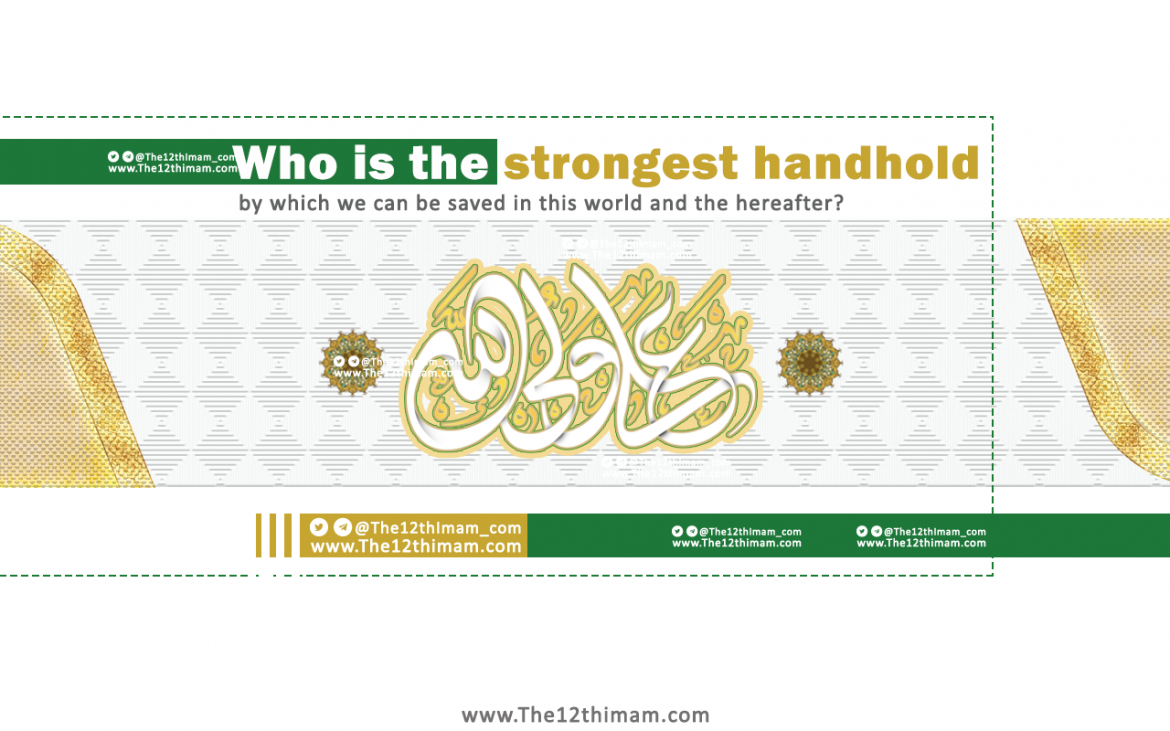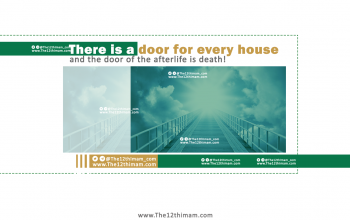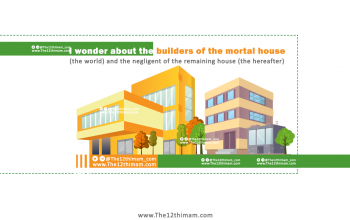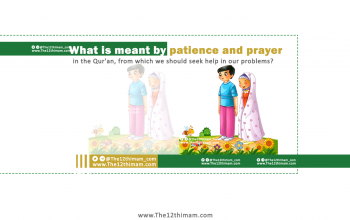When you are getting and standing on a bus, in order to be safe during the bus movement and sudden brakeages, and not to be thrown or to be hurt, you should hold on to the handle installed in the bus.
In our Holy Qur’an, God invites people to hold on to a handle or a strong rope that will never be cut and will save people.
وَ يُؤْمِنْ بِاللهِ فقد استَمْسَكَ بِالْعُرْوَةِ الْوُثْقى لاَ انْفِصامَ لَها وَ أللهُ سَميعٌ عَليمٌ [256[
So whoever disbelieves in Taghut and believes in Allah has grasped the most trustworthy handhold with no break in it. And Allah is Hearing and Knowing. (1)
Since the Qur’an has an inner meaning and each verse has many referents, we can take a few referents for this strong handle. According to the hadiths, at least 3 meanings have been stated for this strong handle, which we will discuss here.
الصّادق (علیه السلام)- قَالَ هِیَ الْإِیمَانُ بِاللَّهِ وَحْدَهُ لَا شَرِیکَ لَهُ.(2)
Imam Sadiq (pbuh) said firmly about the meaning of this knob: It means to believe in the only God who has no partner.
Imam Baqir (pbuh) also said in another narration:
Urwa al-Wuthqa (Arabic: العروة الوثقي) is the same as monotheism. (3)
That is, monotheism in the first sense is a firm knob
But in the second meaning, it refers to the Holy Qur’an
Muhammad bin Musa narrates from his father: Imam Reza (pbup) mentioned the attributes of the Qur’an one day and expressed the firmness and greatness of its argumentations and contentions, and spoke of the miraculousness of its order and said: “The Qur’an is a firm string and a strong pretext of the God (4)
But the third meaning refers to the truth that grasping it saves people and explains the truth.
Imam Reza (pbuh) narrates from his fathers: The Prophet (pbuh) said: “After me there will be a dark fitna (that is, they will usurp the caliphate of Imam Ali and his children after the Prophet, and Islam will be divided into several cults) ; Someone is saved from it by holding on to a very tight rope. It was said: “O Prophet! What is a very strong string? He said: “Wilayah of master and lord of Usiya (the executors).” It was said: “O Prophet! Who is the lord and master of Usiya”? He said: “Amir-ul- Muminin.” It was said: “Who is Amir-ul- Muminin, O Prophet?” He said: “Master of Muslims and their Imam after me.” It was said: “O Prophet! Who is the master of Muslims and their imam after you? He said: “My brother, Ali ibn Abi Talib (pbuh)”. (5)
In another narration, the Prophet (pbuh) said: O Huzaifa! After me, God’s proof for you is Ali ibn Abi Talib (pbuh). [to believe in him is to believe in God] because he is the brother of the Prophet (peace and blessings of God be upon him), his guardian, the Imam of his nation and their master, and he is the rope and the strong adminicle of God that will never be broken. (6)
And he also said: The nine imams after Imam Hussain (pbuh) are guided leaders. He is with the truth and the truth is with them and they will not be separated from each other until the Judgment Day. These are the consistency of the earth, because of which the earth is calm and settled. They are the ropes of Allah and His strong adminicle that will never tear, and they are the proofs of God on earth. (7)
And likewise, Imam Reza (pbuph) said this word of God: has held fast to the firmest handle for which there is no breaking, means Wilayah. Wilayah is a string that cannot be cut, and what is meant [by it] is Amir-ul- Muminin, Imam Ali (pbuh) and the Imams (pbut) after him (8).
1.Surah baqarah, verse 256.
2. Tafsir of Ahl al-Bayt Peace be Upon Them, vol.2, p.302, Al-Kafi, vol. 2, p. 14/ Bihar al-Anwar, vol. 64, p. 131/ Al-Borhan/ Noor al-Saqlain
3. Tafsir of Ahl al-Bayt, peace be upon them, Volume 2, p. 304
Bihar al-Anwar, vol. 64, p. 60/ Al-Ayashi, vol. 1, p. 138.
4. Tafsir of Ahl al-Bayt, peace be upon them, Volume 2, p. 304
Bihar al-Anwar, vol. 17, p. 210/ Noor-ul-Saqlain.
5. Tafsir Ahl al-Bayt, peace be upon them, Volume 2, p. 306
Bihar al-Anwar, vol. 36, p. 20/ Al-Borhan
6. Tafsir Ahl al-Bayt, peace be upon them, Volume 2, p. 306
Bihar al-Anwar, vol. 38, p. 97/ Al-Borhan
7. Tafsir of Ahl al-Bayt, peace be upon them, Volume 2, p. 304
Bihar al-Anwar, vol. 37, p. 86
8. Tafsir of Ahl al-Bayt, peace be upon them, Volume 2, p. 304
Al-Qami, vol. 1, p. 84/ Bihar al-Anwar, vol. 89, p. 263;
The website Al-Vahi.



